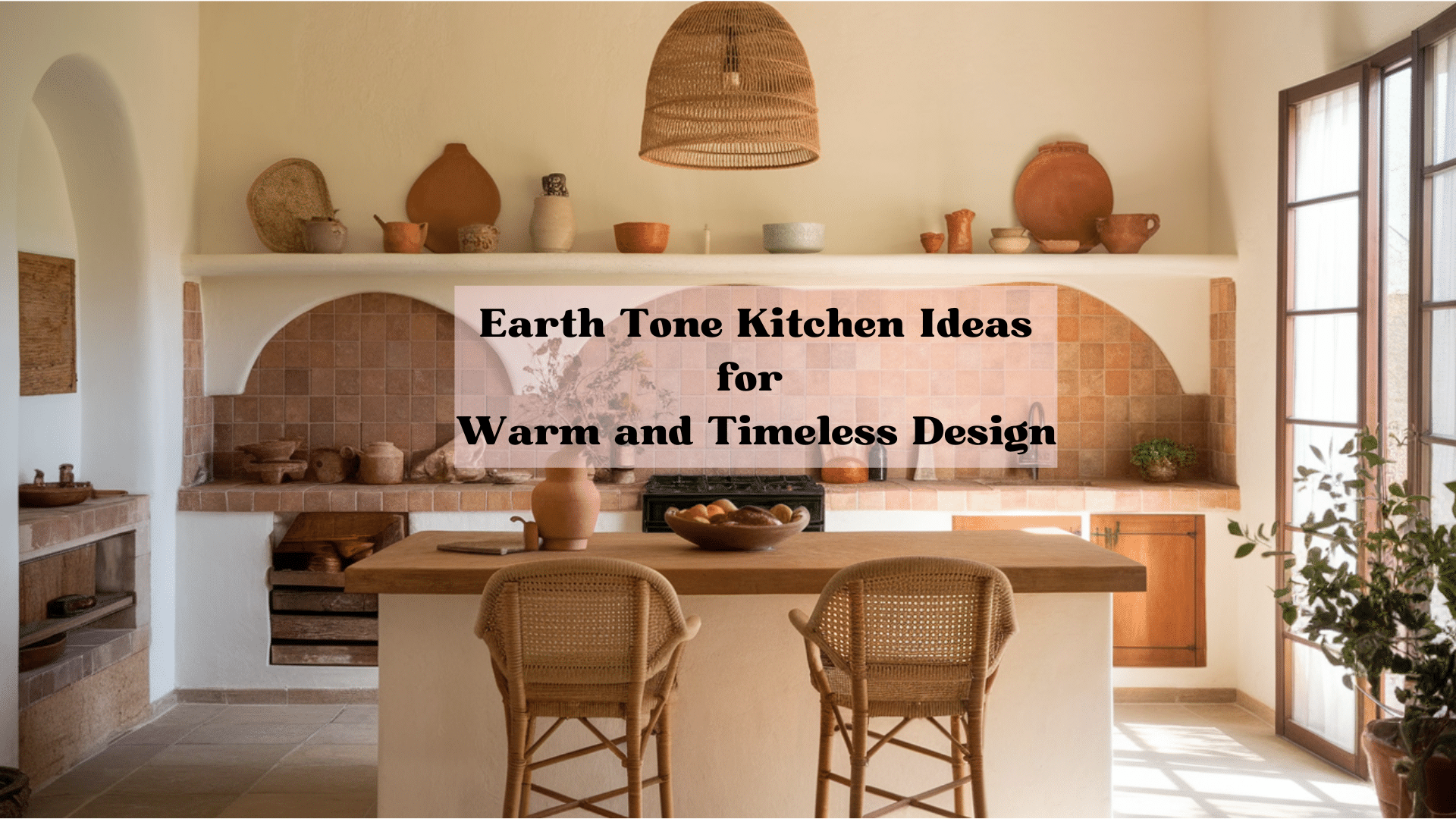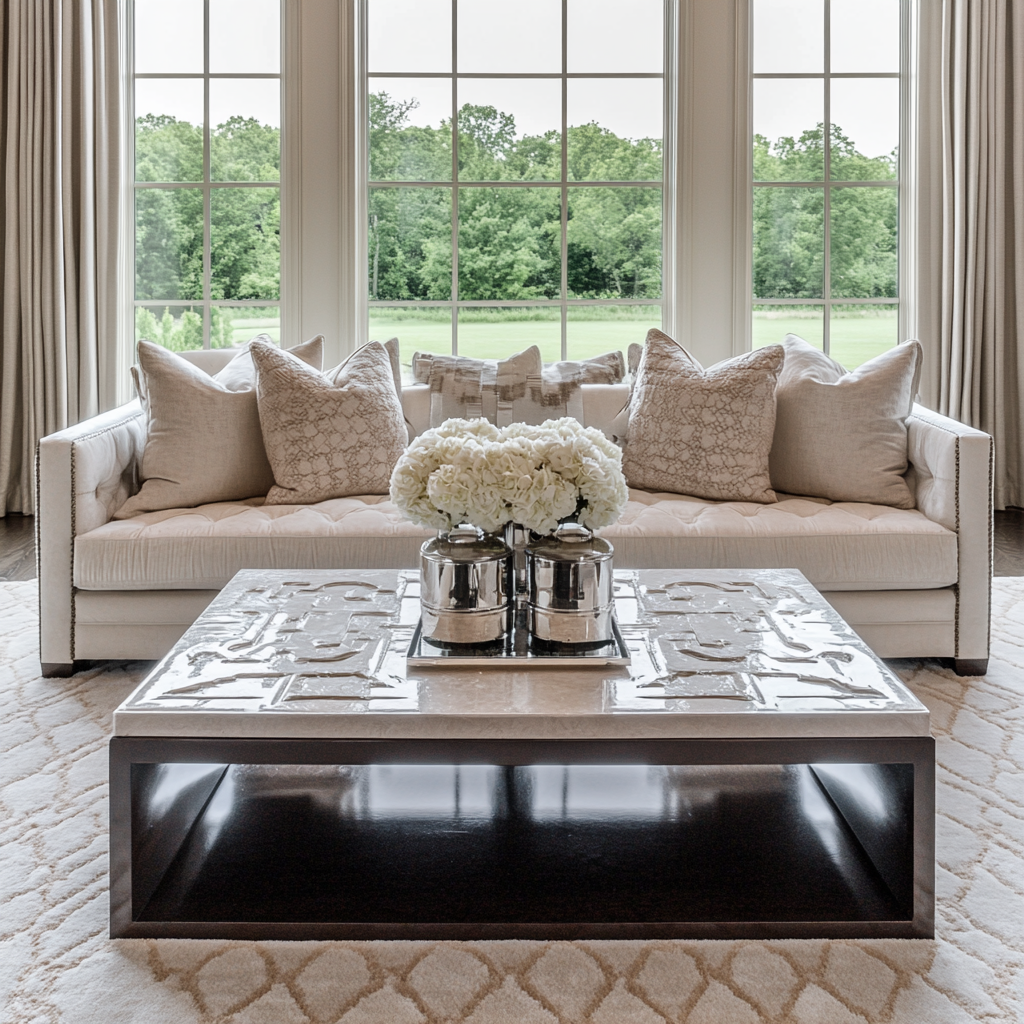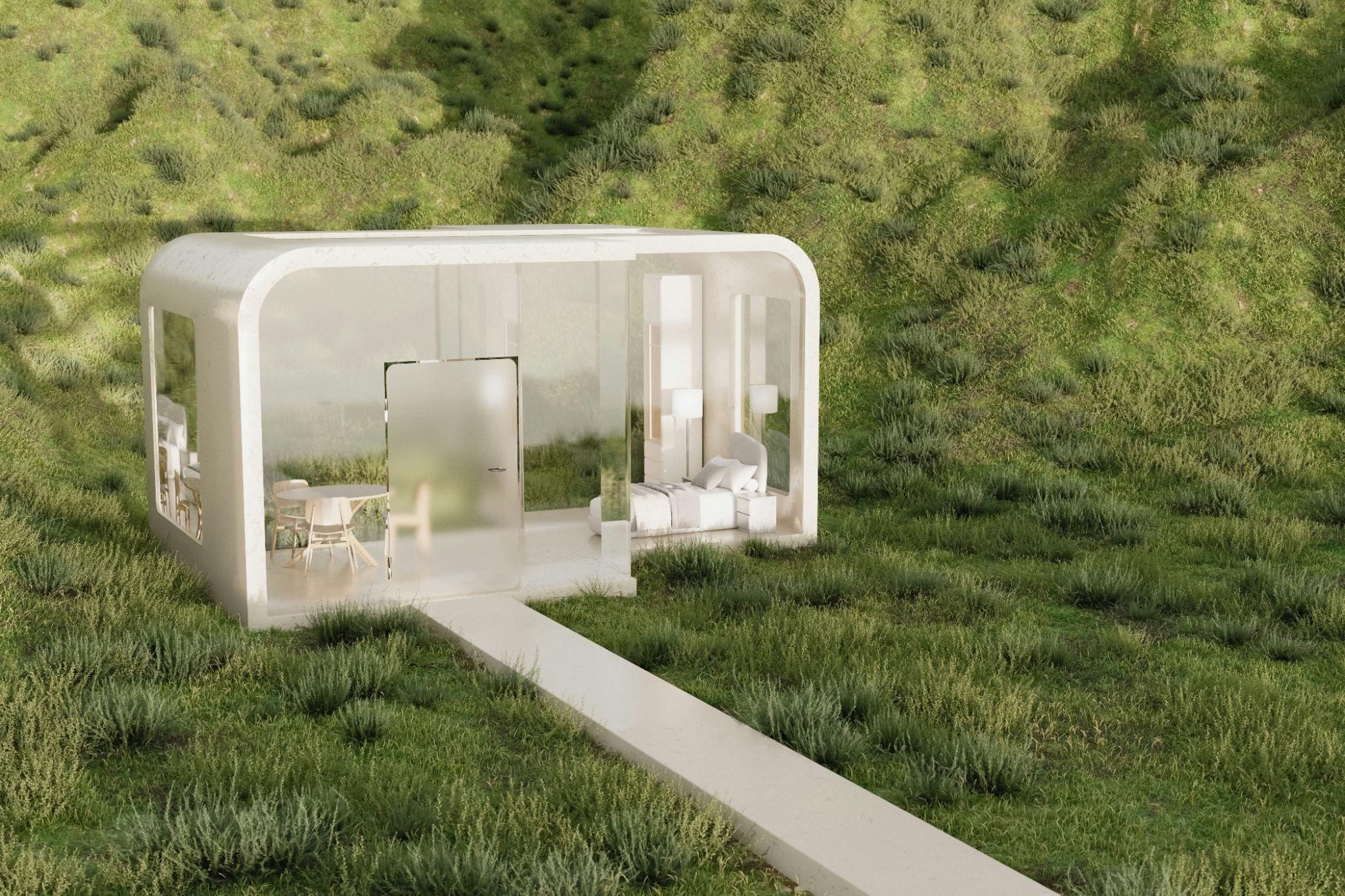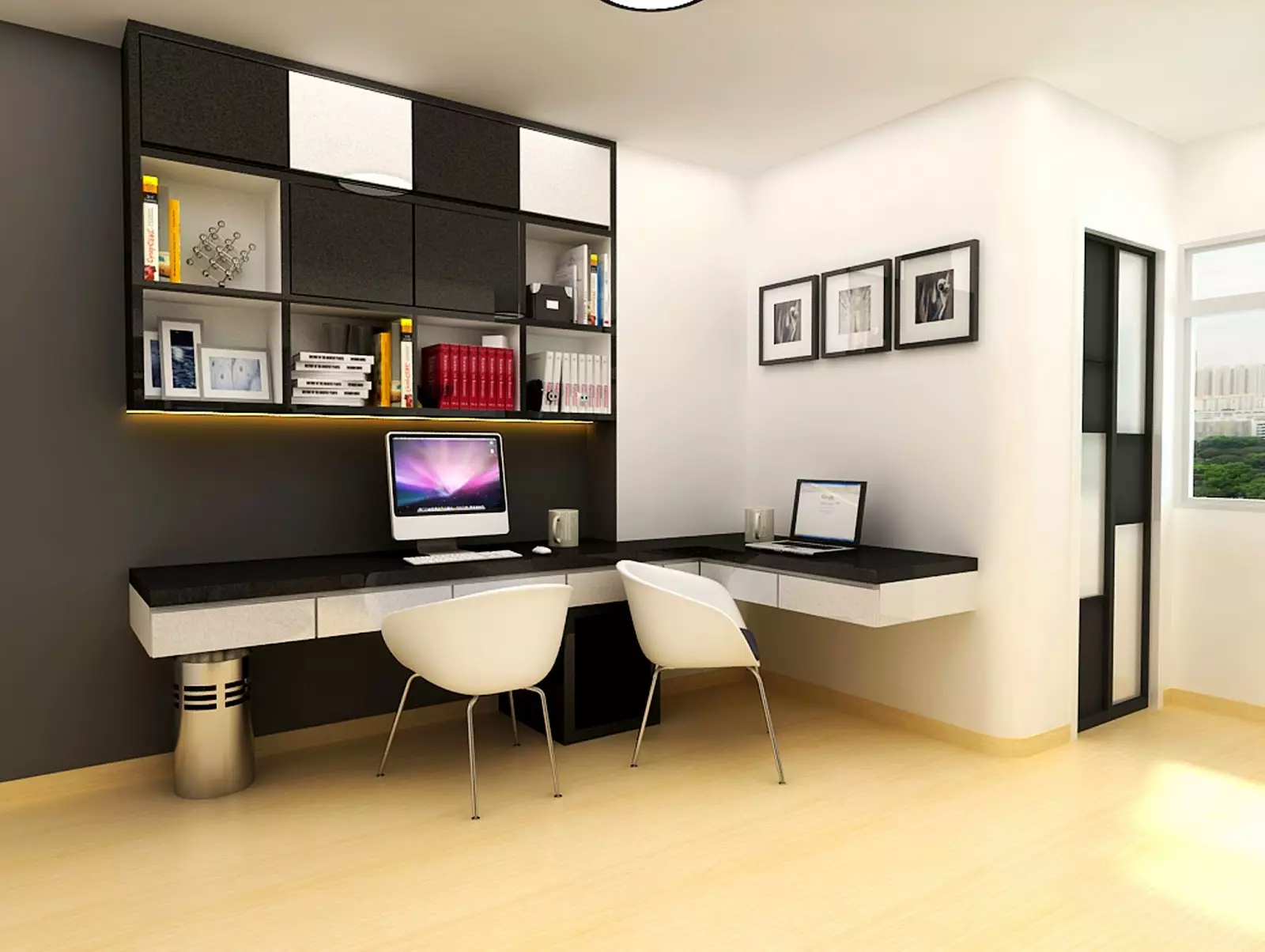Earth Tone Kitchen: Color Suggestions, Tips and More
Earth-tone kitchens have become increasingly popular among homeowners looking to create warm and inviting spaces in their homes.
These kitchens use natural colors—browns, greens, tans, and warm neutrals—to create a calm and welcoming environment for families to gather.
What makes earth tones so appealing is their staying power—they don’t go out of style as trendy colors might.
By bringing these natural shades into your kitchen, you create a link between your indoor living space and the outside world.
This connection helps make your kitchen feel more peaceful and grounded, turning it into a true heart of the home where everyone feels comfortable and at ease.
Key Earth Tone Colors for the Kitchen
Choosing the right earth-tone colors can change your kitchen into a welcoming space that feels both modern and timeless.
These natural shades work well together and can be matched with many design styles.
Warm Earthy Shades
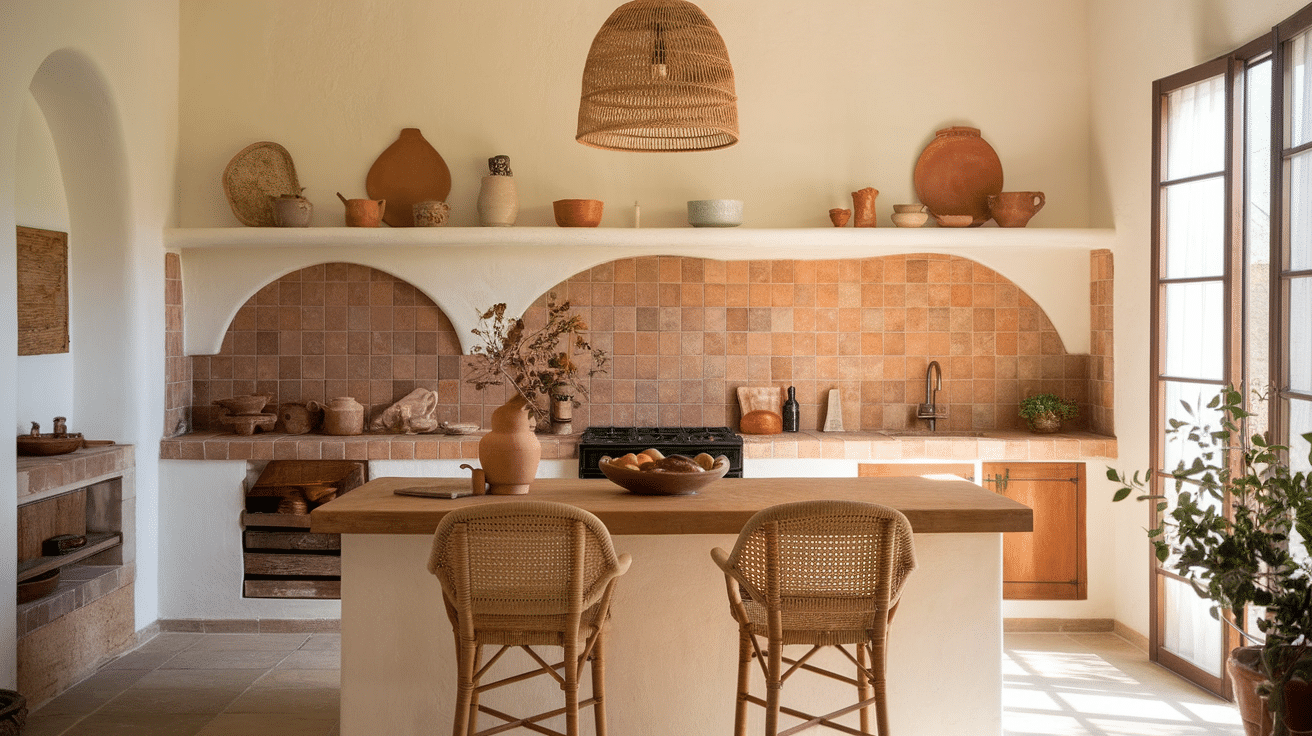
Colors like terracotta, ochre, and burnt sienna bring warmth and coziness to kitchens.
These rich, sun-baked hues remind us of clay soil and desert landscapes.
Adding these warm colors through backsplashes, accent walls, or kitchen accessories creates an inviting atmosphere that makes people want to gather and stay awhile.
These tones work especially well in kitchens that get less natural light.
Neutral and Subtle Earth Tones
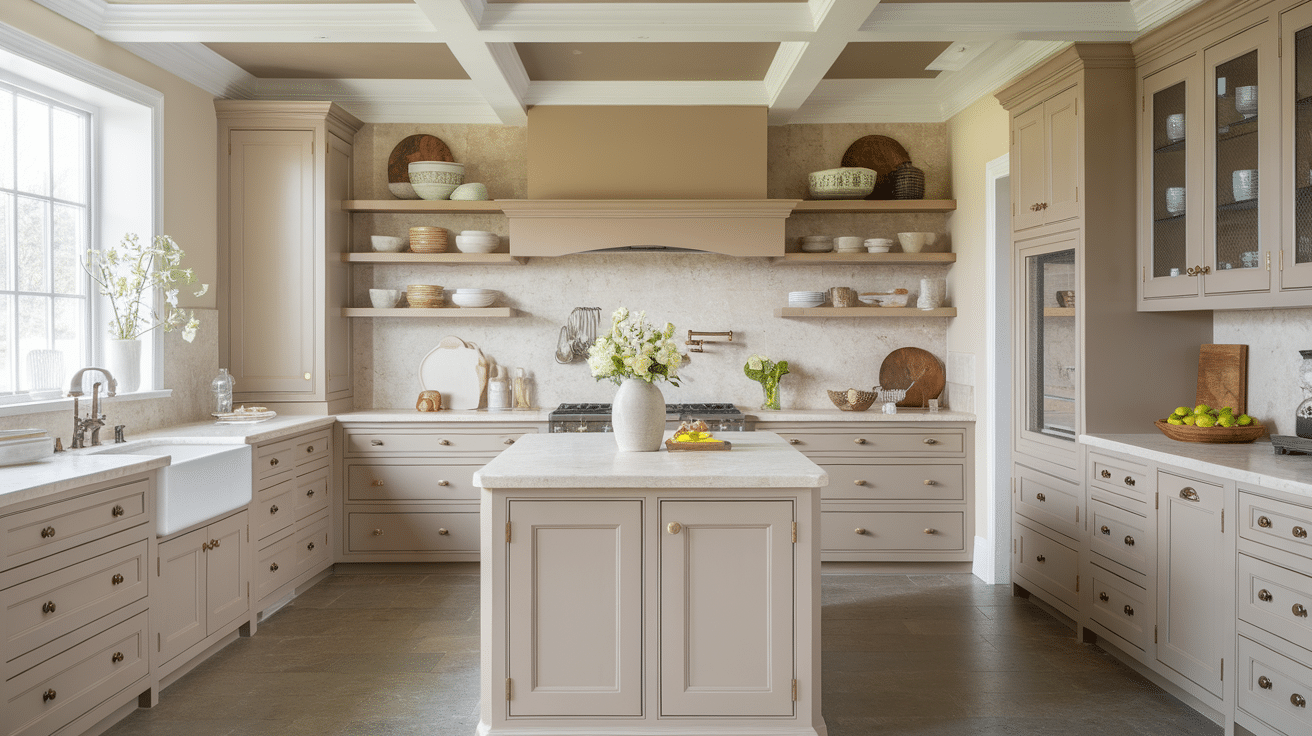
Beige, taupe, and soft browns offer calm and flexibility to kitchen spaces.
These quiet colors create a clean backdrop that lets other elements shine.
Neutral earth tones work well for larger features like cabinets and countertops, allowing you to change accent colors over time without major renovations.
They also help make smaller kitchens feel more open and spacious.
Green and Blue Earth Tones
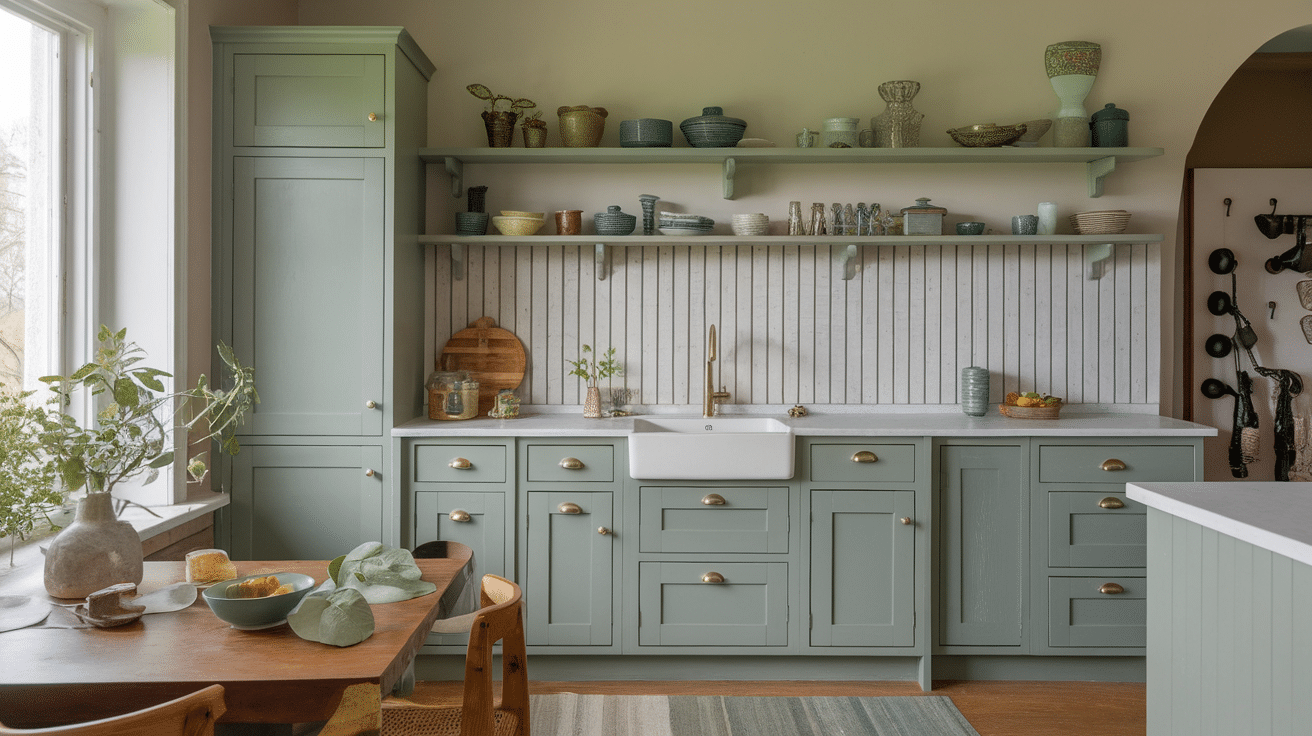
Nature-inspired greens and blues add freshness and calm to earth-tone kitchens.
Sage green, olive and muted teal connect directly to plants and water elements found outdoors.
These colors work beautifully on kitchen islands, lower cabinets, or as accent colors.
They bring balance to warmer earth tones and create a kitchen that feels lively yet peaceful.
Incorporating Earth Tones in Kitchen Cabinets
Cabinets take up much of your kitchen’s visual space, making them ideal places to introduce earth tones.
The right cabinet color sets the mood for your entire kitchen while creating a base for other design elements.
Popular Earth Tone Cabinet Colors
Brown, beige, and muted greens stand out as top choices for earth-tone kitchen cabinets.
Medium-brown cabinets create a classic, warm look that pairs well with many countertops.
Beige and tan cabinets help smaller kitchens feel more open while still providing warmth.
Muted greens like sage and olive bring a touch of nature indoors, creating a fresh yet grounded feeling.
These colors all have staying power that won’t quickly look dated.
Choosing the Right Finish
The finish you select for earth-tone cabinets affects how the color appears in your space.
Matte finishes bring out the depth of earth tones while hiding fingerprints, making them practical for busy kitchens.
Glossy finishes reflect more light, brightening darker earth tones for a modern feel.
Distressed or textured finishes add character, creating a lived-in look that complements farmhouse or rustic kitchen styles.
Earth Tone Paint Colors for the Kitchen
Paint offers one of the most budget-friendly ways to bring earth tones into your kitchen.
The right wall color can tie together your design elements while setting the mood for the entire space.
1. Best Earth Tone Paint Colors
Light terracotta adds subtle warmth, which works well in kitchens with plenty of natural light and pairs beautifully with wood elements.
Muted olive provides a nature-inspired backdrop that feels both current and timeless, working well with brass or copper fixtures.
Warm taupe brings coziness without overwhelming the space, making it perfect for smaller kitchens.
Sand-inspired tones create a clean, bright feel while still maintaining the earth-tone theme.
2. Creating Balance with Paint
When choosing earth-tone paints, consider the visual weight of your kitchen cabinets and countertops.
Lighter earth-tone walls help balance darker cabinets, while richer wall colors add depth to kitchens with white or light wood cabinets.
For open-concept spaces, use earth-tone paint to define the kitchen area while maintaining flow.
An accent wall in a deeper earth tone can highlight an interesting kitchen feature without overwhelming the space.
Earth Tone Kitchen Ideas from Real Homes
Real-life kitchen designs reveal the transformative power of earth tones, showcasing how natural, grounding colors can create spaces that are both beautiful and inviting.
A Rustic Mountain Retreat Kitchen
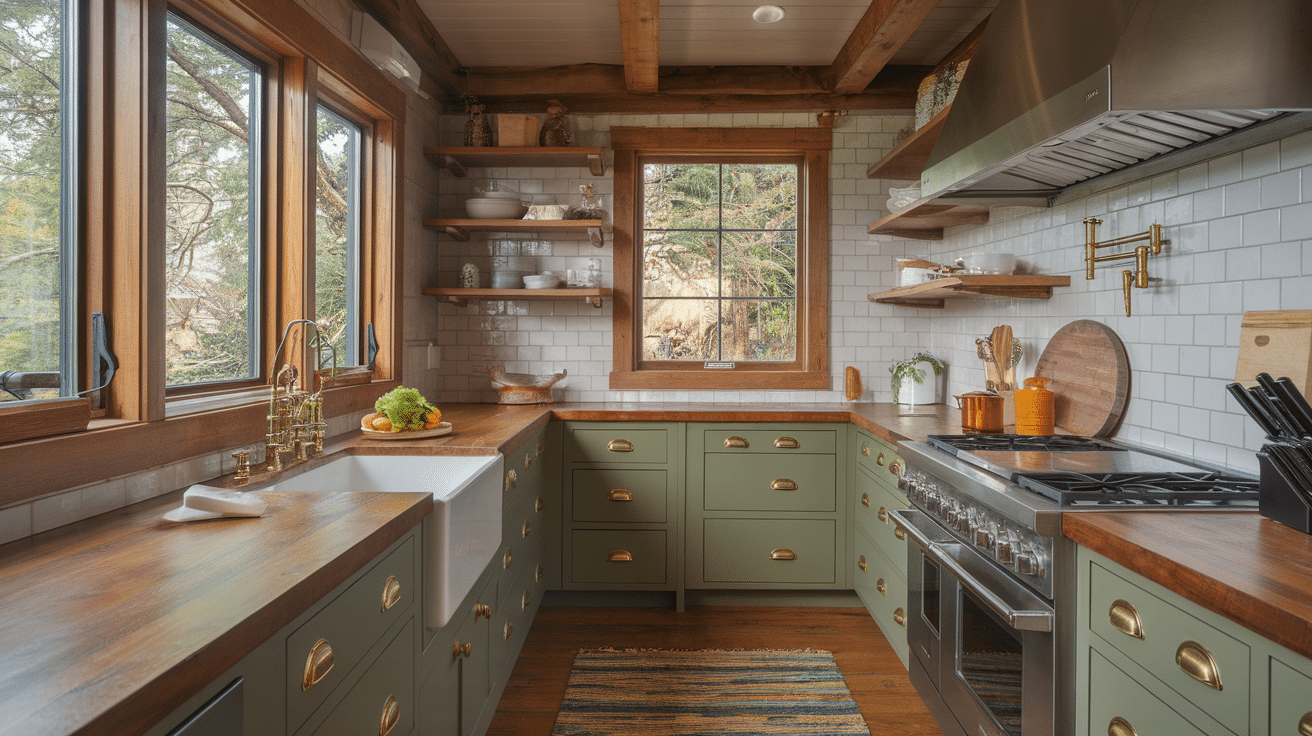
In a Colorado mountain home, deep olive green cabinetry pairs with warm cedar wood countertops and terracotta tile flooring.
Brass hardware and open shelving bring warmth, while large windows highlight the earthy color scheme and connect indoor and outdoor spaces.
Modern Minimalist with Organic Touches
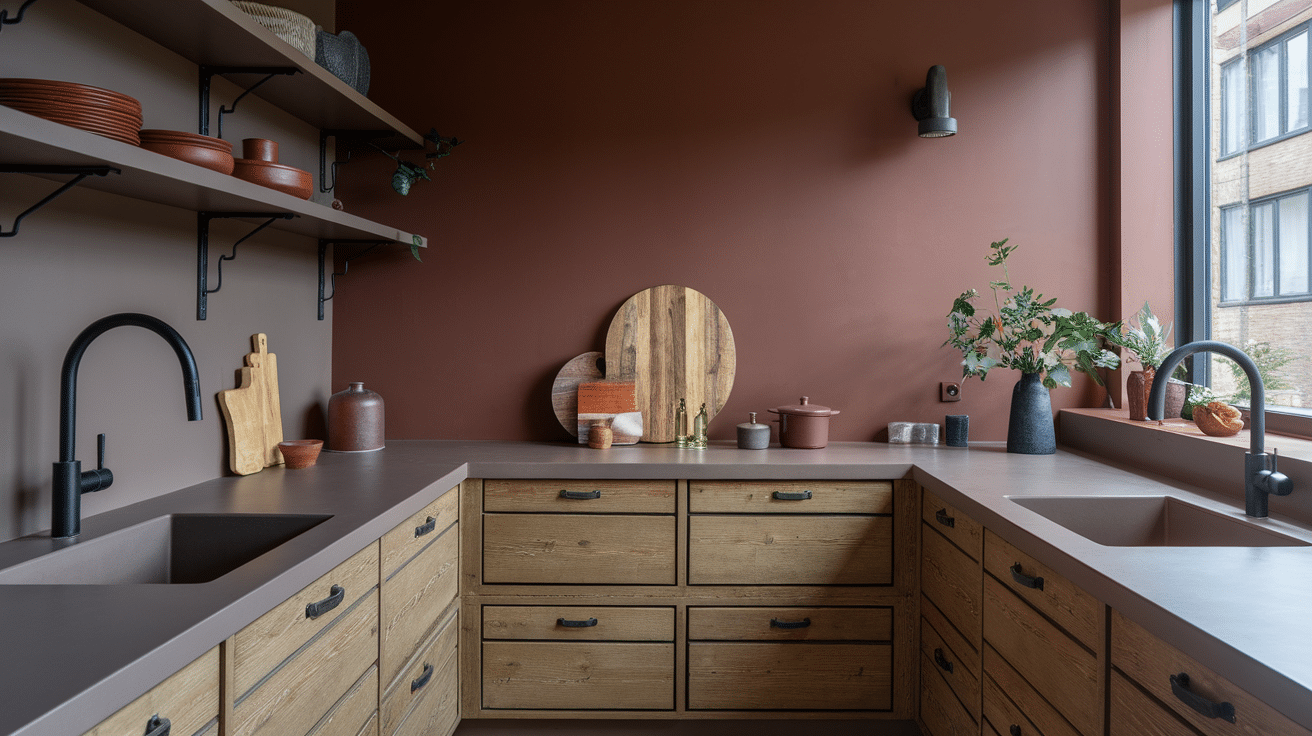
A sleek urban kitchen demonstrates earth tones in a contemporary setting.
Concrete countertops in soft taupe complement light wooden cabinets, with rust-red bar stools and a ceramic vase adding visual interest.
Indoor herbs complete the organic feel.
Coastal Inspired Earthy Elegance
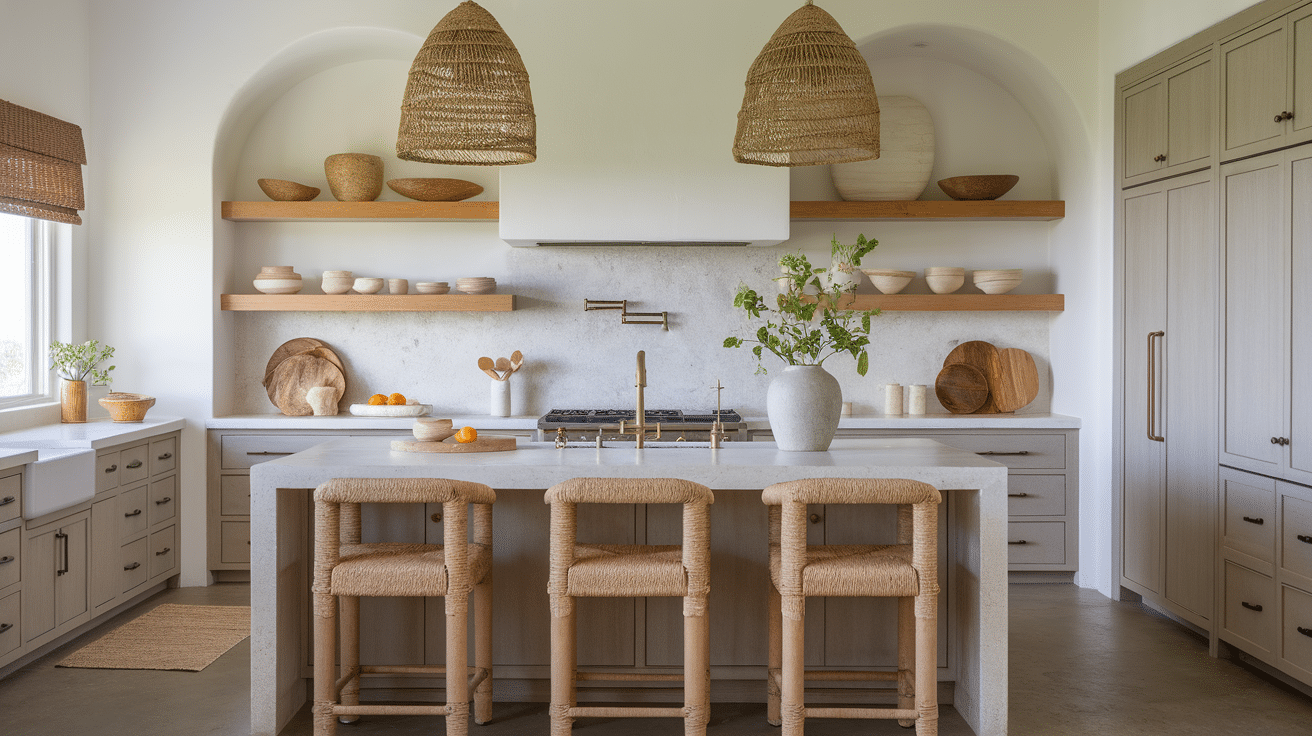
A California beach house kitchen features sand-colored cabinets with a stone backsplash in beiges and grays.
Driftwood-inspired shelving and woven accessories connect to the coastal landscape, proving that earth tones can evoke natural tranquility.
Earth Tone Kitchen Flooring and Countertops
Flooring and countertops cover large areas of your kitchen, making them key elements for bringing earth tones into your design.
The right materials in natural shades add warmth and texture while providing durability for these high-use surfaces.
Natural Materials for Flooring
Wood flooring brings natural warmth and earth tones directly into your kitchen.
Oak, maple, and walnut offer varying shades of brown that age beautifully. Stone tiles in slate, travertine, or limestone provide earthy colors with added durability.
Porcelain tiles that mimic natural stone or wood give you an earthy look with less maintenance.
Cork flooring offers a softer feel in natural tan shades that work well with many earthy color schemes.
Countertop Ideas
Granite countertops in brown, tan, and beige tones bring natural patterns and warmth to earth-tone kitchens.
Quartz countertops offer similar looks with lower maintenance needs in many earth-tone shades.
Concrete countertops can be stained in custom earth tones for a modern yet warm look.
For budget-friendly options, laminate countertops now come in realistic earth-tone patterns that mimic stone and wood at a fraction of the cost.
Combining Earth Tones with Natural Materials
Earth tones create a serene and grounding atmosphere in interior design, especially in kitchen spaces.
By thoughtfully integrating natural materials and textures, you can transform your kitchen into a warm, inviting sanctuary that connects with the natural world.
Incorporating Wood and Stone
- Use wooden cutting boards, utensil holders, and open shelving to bring natural wood tones into the kitchen.
- Incorporate stone countertops or backsplashes in shades of granite, marble, or slate to add depth and texture.
- Consider wood and stone accent pieces that complement your earth-toned color palette.
Textures to Add Warmth
- Layer woven jute or wool rugs with subtle earth-toned patterns to add comfort and visual interest.
- Hang linen or cotton curtains in soft, muted colors to soften the kitchen’s aesthetic.
- Use textured ceramic pottery, woven baskets, and natural fiber linens to enhance the space’s organic feel.
Design Tips for an Earthy, Inviting Kitchen
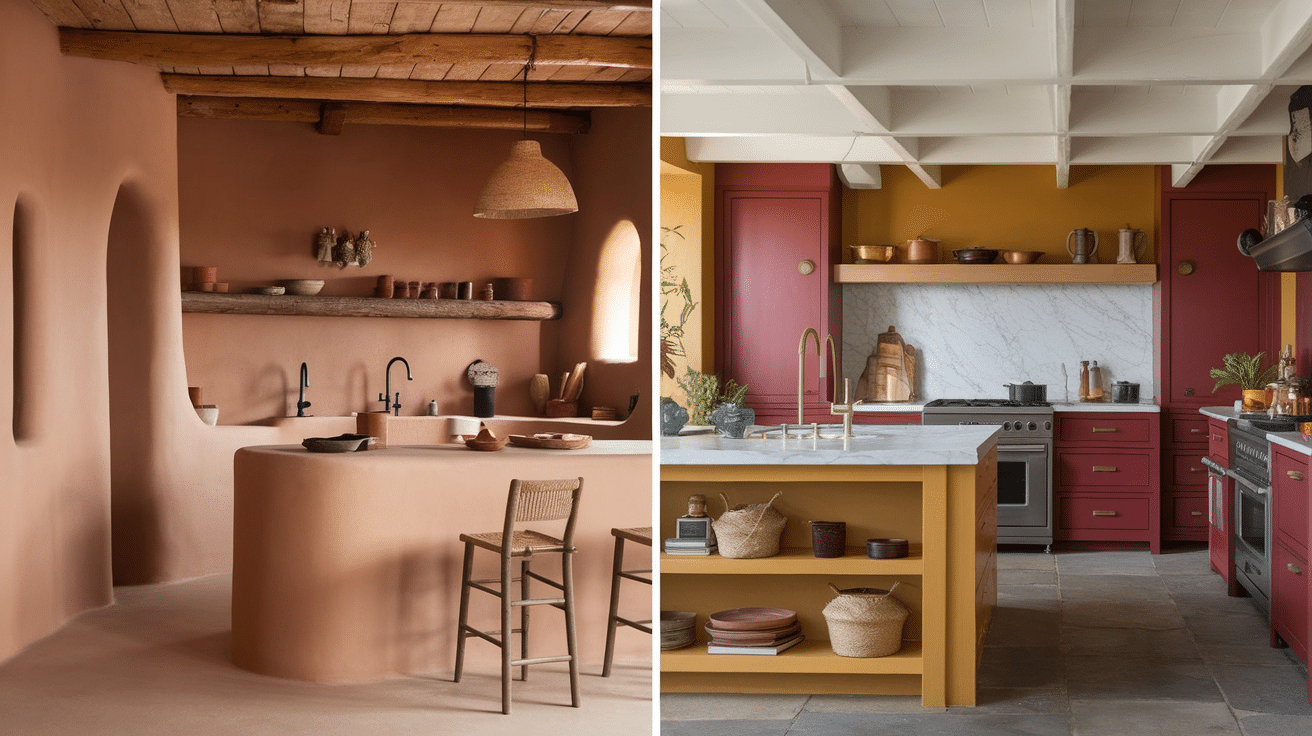
Earth tones create a harmonious and grounding atmosphere in kitchen design, offering a sense of comfort and natural beauty that transforms the heart of the home into a welcoming sanctuary.
Creating a Warm Atmosphere
Crafting a cozy kitchen begins with choosing soft, muted earth tones that evoke a sense of comfort.
Consider warm browns, soft terracottas, and mellow greens, which create a soothing backdrop. To add depth and warmth, incorporate warm lighting with pendant lights or under-cabinet illumination.
Natural materials like wooden cutting boards, woven baskets, and stone countertops enhance the inviting feel, while strategically placed textiles such as linen towels and wool rugs soften the overall aesthetic.
Layering Earth Tones with Accent Colors
To prevent earth tones from feeling flat, introduce carefully chosen accent colors that bring vibrancy and interest to the space.
Deep red elements can add a rich, passionate touch, while mustard yellow provides a golden warmth that complements neutral browns and greens.
These accent colors work best when used sparingly – think a set of ceramic mugs, a statement piece of artwork, or decorative kitchen accessories that add personality without overwhelming the serene earth-toned palette.
Conclusion
Earth-tone kitchens offer more than just a design choice.
By adding colors inspired by nature, homeowners can transform their kitchen into a space that feels both timeless and deeply personal.
These harmonious palettes provide a versatile backdrop that can easily adapt to changing styles and individual tastes.
Whether you’re drawn to neutrals or rich, deep hues, earth tones invite you to explore a design approach that connects your living space to the natural world.
Don’t be afraid to experiment, mix textures, and let your kitchen tell a story of warmth and organic elegance.

